Euthamia graminifolia
A common goldenrod with lance-shaped, grass-like leaves
Euthamia graminifolia common grassleaf goldenrod
Add to MyPlants View Locations
Like all goldenrods, this native perennial species is a member of the aster family. Unlike other common goldenrod species, it has flowers in a flat-topped cluster, rather than a plume. These are mildly fragrant and have 12-25 ray florets in a composite flower head. Each flower head is only about 1/8 inch in diameter, smaller than many other goldenrods. The flowers bloom gradually with the older flowers turning brown, while others are still in the bud stage.
The plant grows 1-4 feet tall and is found in damp places, thickets, and along roadsides and stream banks. It prefers full sun. It can often tolerate dry soil and is drought-resistant. It is seldom branched except near the top. It can form colonies by spreading rhizomes .
This species is found from Canada to the deep south in the eastern 2/3 of North America and is quite common. It blooms from July to October. The alternate leaves are narrow with 3-5 parallel veins, though the smaller leaves may have fewer. The similar fragrant goldenrod (S. tenuifolia) has only a single vein in its narrower leaves.
Habitat & Range
Common in moist fields, roadsides, ditches and shores.
Present throughout the state.
Range: From Canada to the deep south.
| EMP: | FAC |
|---|---|
| NCNE: | FAC |
Phenology
Flowers July to November. Blooming period is 6 to 8 weeks.
Plant Codes
S-rank: S5 (Secure)
G-rank: G5 (Secure)
Euthamia graminifolia common grassleaf goldenrod
Synonyms: Solidago graminifoliaAdd to MyPlants View Locations
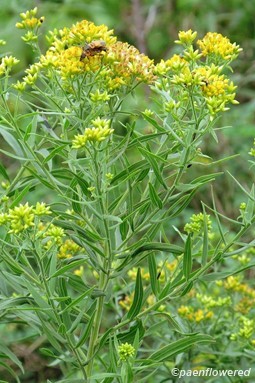
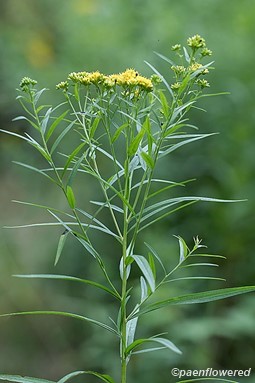
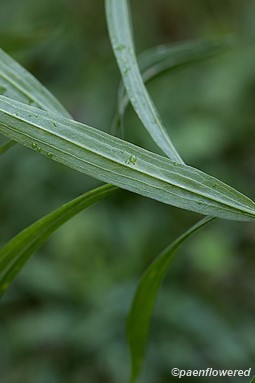
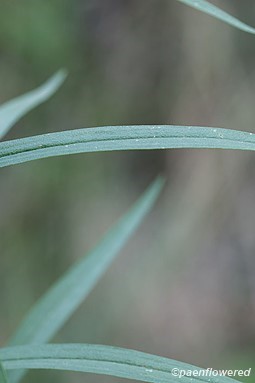
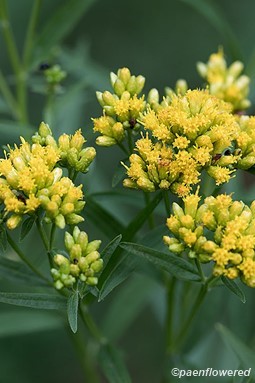
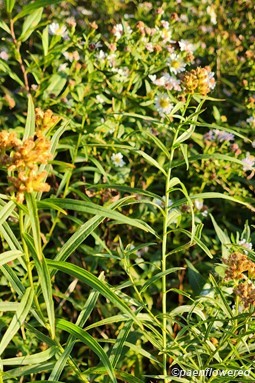

Comments
Have you spotted this plant in your area? We'd love to hear about your experience! Share your comments or questions about the plant below. Comments are moderated before posting.